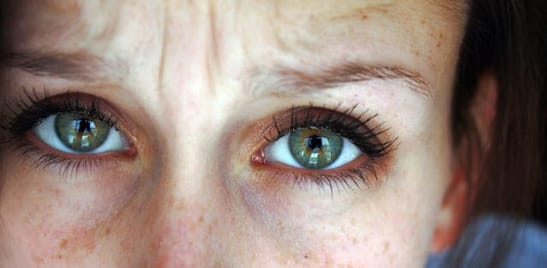So what is cannabis effective for in the senior population?
Let's start with Insomnia
which is not well managed generally, and is really common in seniors: upwards of 50% of us at some point having a hard time falling asleep, and up to 70% have trouble staying asleep. Seniors find it more difficult to return to sleep after waking in the night and we spend less total time sleeping than when we were younger. And, to add insult to injury, the quality of the sleep we do get, isn’t as good.
We get up more often to urinate or because of a pain that disrupts our sleep. This is really bad for a number of reasons. Seniors with Insomnia run increased risk of:
There are a few approaches to treating insomnia that are not drug based like Cognitive Behavioural Therapy for Insomnia (CBT-I) but unfortunately most patients suffering from insomnia usually end up on benzos, hypnotics, or sedating antidepressants.
The Hypnotics
Like Ambien, Halcyon, Lunesta, etc are ALL on the BEERS List for medications that shouldn’t be given to seniors and which show a threefold increase in the chance of death if used less than 2 dozen times a year.
YIKES!
Antidepressants
They can cause sedation, sexual dysfunction, postural hypotension, cardiac arrhythmia, and sudden cardiac death. Benzodiazepines cause sedation, confusion, drowsiness and postural instability contributing to the risk of falls and fractures. They have negative effects on thought processes and memory, delirium, drug-related pseudo dementia and a possible link to cognitive decline and Alzheimer’s disease
Anxiolytics
Like Ativan and Xanax can cause:
Drowsiness, Sedation, Confusion, Dependence and withdrawal symptoms, Nausea, Diarrhea, Sexual dysfunction, Headache, Suicidal thoughts, Elevated blood pressure, Dry mouth, Blurred vision, Constipation, Orthostatic hypotension, Increased heart rate, Abnormal heartbeat, and Weight gain.
Cannabis, and THC in particular, is fabulous for sleep! Maybe you've noticed one of the mentioned side-effects of THC is drowsiness which is just a short step from sleep.
Then there's chronic pain,
many seniors are using pharmaceuticals, such as opiates, or anti-seizure drugs for nerve pain, and aren't getting relief from them. Cannabis is great for neuropathy.
Maybe you're having issues with sleep because you're in pain or you're anxious about your pain. When you have chronic pain, it is all consuming. This affects your mood, which makes the pain worse which makes sleep harder which makes your mood worse and the circle continues. If we deal with your pain it will help your sleep and improve your mood which helps the pain.

Opiates cause: Nausea, Sedation, Constipation, Urinary Retention, Respiratory Depression, Opioid Induced Hyperalgesia, Accidental Overdose, Addiction, and Death.
Cannabis on the other hand provides gentle relief to both sleep and pain sufferers. According to Gates, et al, [2014] THC in low doses increases the duration of sleep while a 2010 study (McPartland, et al) looks at how cannabis and THC improves quality of life in patients with fibromyalgia.
The National Academy of Sciences review found significant evidence of benefit for sleep apnea and every client I’ve had with sleep problems has been helped by cannabis.
Maybe you're not sleeping because you're anxious and depressed. Many seniors are looking for mood elevation later in life and cannabis is excellent for that and it's much healthier than alcohol which a number of seniors turn to out of boredom or loneliness.
If you or a loved one has been diagnosed with a neurodegenerative disease like Alzheimer's you know that a marker of it is the beta amyloid plaques that build up around neurons. What you need to know is that cannabis can help prevent the progression of Alzheimer's and actually treat the underlying disease, not just treat the symptoms. If you have other age-related, inflammatory and autoimmune diseases then you also need to learn about cannabis.

Just about whatever ails you, can be helped by adding cannabis to your life.
To make this more real I want to point out a paper from the European Journal of Internal Medicine from 2018. The article, Epidemiological Characteristics, safety and efficacy of Medical Cannabis in the Elderly is from a group in Israel.
The study included almost 800 patients over the age of 65 with just over half being women. The researchers wanted to know how cannabis affected pain levels, quality of life and what the adverse effects were.
After 6 months, 93.7% of the patients had experienced some level of improvement in their condition with the average pain level going from an 8 to a 4 on a 1-10 scale. Side-effects were mild with dizziness being experienced by 9.7%, dry mouth by 7.1% and tiredness by 3.9% of patients.
Interestingly, after using cannabis for 6 months, the number of falls reported by patients decreased significantly and many were able to reduce their use of pharmaceuticals, including opiates.
The authors conclude with:
"Our study finds that the therapeutic use of cannabis is safe and efficacious in the elderly population. Cannabis use may decrease the use of other prescription medicines, including opioids. "
If you think you'd like to know more about the plant and how to use it, click the contact link below and let's start the conversation, I'd love to help.